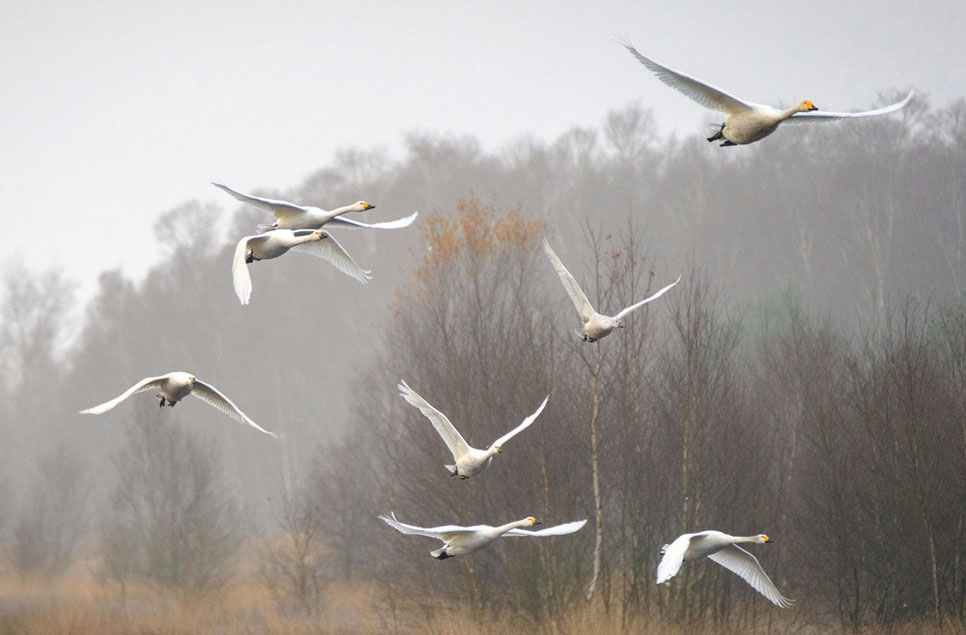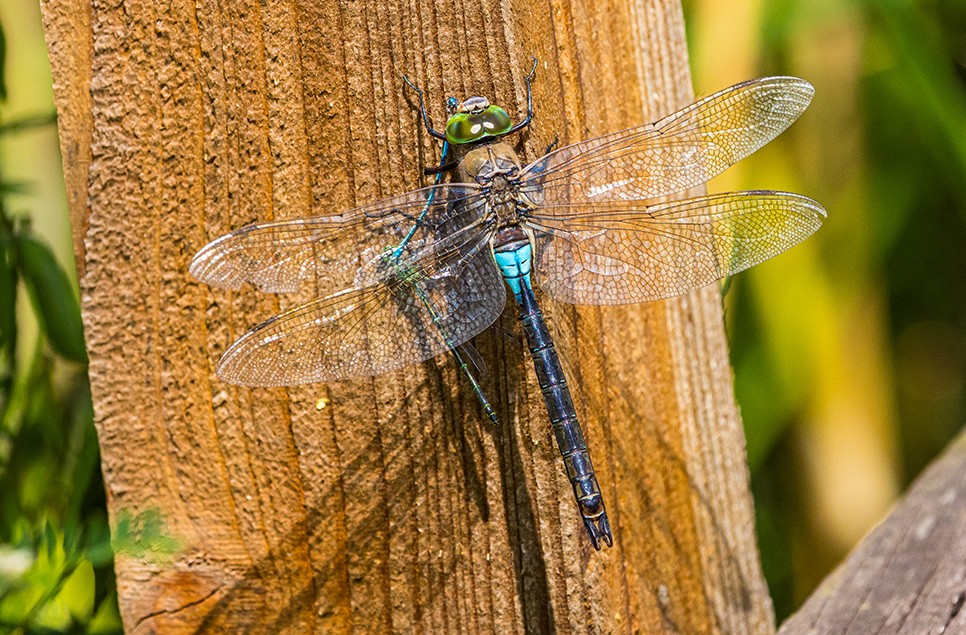Protecting the world’s wetlands – milestone lead shot ban comes into force
Following years of campaigning by WWT, Birdlife and other international partners, it is now illegal to use lead gunshot in and around wetlands in all 27 EU countries as well as Iceland, Norway and Lichtenstein.

The new law, which came into full effect on 15 February 2023, will not only help protect the health of wetlands, but should save the lives of millions of birds. This important milestone marks the end of a two year transition period to allow countries to ditch lead for non-toxic ammunition.
Waterbirds are particularly susceptible to lead poisoning as they ingest discarded lead shot while feeding and mistake the small pellets for grit which they select to help grind up their food.
Lead’s toxic influence also extends to other wildlife as poisoned birds, weakened by lead, are easy targets for predators and scavengers such as eagles and vultures which then also succumb to its harmful impacts. And people are not exempt from the risks – they become exposed to lead when eating game meat contaminated with fragments of lead shot.
After years of campaigning, the world is finally wising up to the harm caused by lead. Over the last two decades, WWT has undertaken and shared scientific research which has helped reveal the true extent of the problem and the barriers to change, while pushing for a transition away from lead.
Dr Julia Newth, Ecosystem Health & Social Dimensions Manager at WWT:
“This EU law is a huge leap towards ending lead ammunition poisoning of wildlife in Europe. There is no safe level of lead – it has polluted wetlands for more than a century, creating a toxic environment for those that depend on them. This milestone recognises that it is time to clean up our act. This ban must be fully enforced by EU countries to ensure their wetlands are healthy for wildlife and future generations”.
While this ban will reduce the exposure of lead to wildlife and people, it will not eliminate it as lead shot remains legal outside of wetland areas. Waterbirds such as Bewick’s swans, which are declining rapidly in Europe, will continue to be poisoned as they often spend large proportions of their day feeding away from wetlands where it remains legal to shoot with lead in most places. Lead shot poisoning remains a risk to other predators and scavengers, and game birds which often end up on the dinner table.
Given these continued risks, the European Chemicals Agency has proposed a second restriction on the use of lead for outdoor shooting outside of wetlands and lead fishing weights and lures, in all EU countries.
The UK has already banned lead fishing weights and WWT’s research has shown the positive impact that this has had on mute swans. There are partial restrictions on lead ammunition currently in place in the UK but, like in mainland Europe, the poisoning continues since wetland species continue to ingest lead shot when feeding in non-wetland areas where is it mostly legally permitted and compliance with regulations is poor.
The UK’s Health & Safety Executive, as part of the UK REACH process, has recently recommended further restrictions on the use of lead ammunition over all types of landscape in England, Scotland and Wales. WWT will continue pushing for a move away from lead ammunition in order to ensure healthier wetlands globally.
Dr Newth added:
“This is an important milestone in our campaign to protect and improve wetlands for nature, for wildlife and for people. Further regulations on lead ammunition in the UK and EU will help us to leave the toxic legacy of lead well and truly behind.”
Find out more about our work to tackle harmful lead ammunition on our campaign page.



